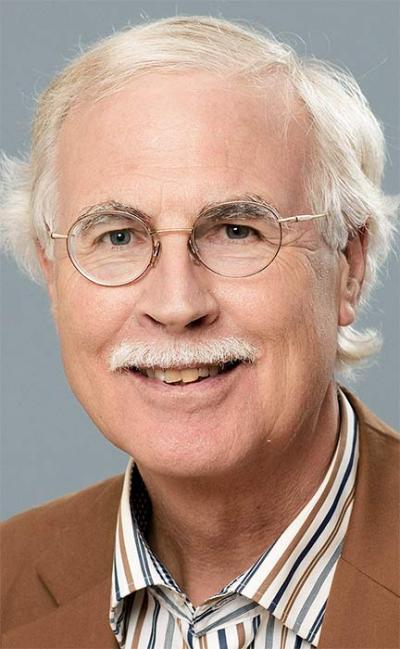

 In early April, I had a routine consultation with my electrophysiologist at Nuvance Health via telehealth. Nuvance uses telehealth technology from American Well. In preparation for the consult, I took my blood pressure with a Qardio cuff and my iPhone, weighed myself on the Fitbit scale, and took a 30-second ECG with the Apple Watch. A nurse called 15 minutes before my appointment and took the information for input to the Electronic Health Record. more
In early April, I had a routine consultation with my electrophysiologist at Nuvance Health via telehealth. Nuvance uses telehealth technology from American Well. In preparation for the consult, I took my blood pressure with a Qardio cuff and my iPhone, weighed myself on the Fitbit scale, and took a 30-second ECG with the Apple Watch. A nurse called 15 minutes before my appointment and took the information for input to the Electronic Health Record. more
 The final numbers are in for 2019 and the largest cable providers collectively lost over 5.9 million customers for the year - a loss of almost 7% of customers. The numbers below come from Leichtman Research Group which compiles these numbers from reports made to investors, except for Cox which is estimated. The numbers reported are for the largest cable providers, and Leichtman estimates that these companies represent 95% of all cable customers in the country. more
The final numbers are in for 2019 and the largest cable providers collectively lost over 5.9 million customers for the year - a loss of almost 7% of customers. The numbers below come from Leichtman Research Group which compiles these numbers from reports made to investors, except for Cox which is estimated. The numbers reported are for the largest cable providers, and Leichtman estimates that these companies represent 95% of all cable customers in the country. more
 Nobody loves a good crisis more than a hacker and, by anyone's definition, coronavirus is a big, fat stinking crisis that almost everyone on earth is sitting in the middle of. For most of us, a crisis brings out the best. First responders and the healthcare systems are replete with stories of superhuman sacrifice and commitment to others. Unfortunately, it is this commitment to the work at hand that puts cybersecurity on the back burner and increases the chance of a breach, break-in, or general mischief. more
Nobody loves a good crisis more than a hacker and, by anyone's definition, coronavirus is a big, fat stinking crisis that almost everyone on earth is sitting in the middle of. For most of us, a crisis brings out the best. First responders and the healthcare systems are replete with stories of superhuman sacrifice and commitment to others. Unfortunately, it is this commitment to the work at hand that puts cybersecurity on the back burner and increases the chance of a breach, break-in, or general mischief. more
 In the midst of the coronavirus crisis and the partial or total quarantines happening around the world, more people are turning to eCommerce for their purchases. This, combined with the increased demand for healthcare and healthcare-related products, is causing surges of activity on online marketplaces. Perhaps least surprising is the growth in the number of listings for cleaning and hygiene products (e.g., hand sanitizer), as well as facemasks... more
In the midst of the coronavirus crisis and the partial or total quarantines happening around the world, more people are turning to eCommerce for their purchases. This, combined with the increased demand for healthcare and healthcare-related products, is causing surges of activity on online marketplaces. Perhaps least surprising is the growth in the number of listings for cleaning and hygiene products (e.g., hand sanitizer), as well as facemasks... more
 When I want to go to a website, I just type in the URL, and I'm there. Sure, we had to get a subscription from a service provider and set up our devices, but that was a one-time thing. As we move into a world of many connected devices, it's no longer a one-time thing. Today, creating connected devices and services requires thinking about all the mechanics and networking and onboarding and providers. more
When I want to go to a website, I just type in the URL, and I'm there. Sure, we had to get a subscription from a service provider and set up our devices, but that was a one-time thing. As we move into a world of many connected devices, it's no longer a one-time thing. Today, creating connected devices and services requires thinking about all the mechanics and networking and onboarding and providers. more
 In recent weeks we've seen a range of press articles, security blogposts and public statements addressing real or perceived issues with network capacity and the domain name system (DNS) in particular. These range from concerns about the resilience of the DNS with questions on the impact of the number of registrations to news indicating that a tidal wave of fraud and abuse is hitting the world. more
In recent weeks we've seen a range of press articles, security blogposts and public statements addressing real or perceived issues with network capacity and the domain name system (DNS) in particular. These range from concerns about the resilience of the DNS with questions on the impact of the number of registrations to news indicating that a tidal wave of fraud and abuse is hitting the world. more
 A little over 25 years ago, the Internet Society proposed that they assume responsibility for the DARPA Internet Protocol (IP) specifications Intellectual Property Rights (IPR) that were being evolved by the Internet Engineering Task Force (IETF) to facilitate their use by the mainstream network communication standards bodies and providers. Last week, the IETF, in an attempt to fend off alternative Internet Protocols emerging in the 5G ecosystem and create a standards monopoly, asserted... more
A little over 25 years ago, the Internet Society proposed that they assume responsibility for the DARPA Internet Protocol (IP) specifications Intellectual Property Rights (IPR) that were being evolved by the Internet Engineering Task Force (IETF) to facilitate their use by the mainstream network communication standards bodies and providers. Last week, the IETF, in an attempt to fend off alternative Internet Protocols emerging in the 5G ecosystem and create a standards monopoly, asserted... more
 Zoom programmers made elementary security errors when coding, and did not use protective measures that compiler toolchains make available. It's not a great stretch to assume that similar flaws afflict their server implementations. While Mudge noted that Zoom's Windows and Mac clients are (possibly accidentally) somewhat safer than the Linux client, I suspect that their servers run on Linux.Were they written with similar lack of attention to security? more
Zoom programmers made elementary security errors when coding, and did not use protective measures that compiler toolchains make available. It's not a great stretch to assume that similar flaws afflict their server implementations. While Mudge noted that Zoom's Windows and Mac clients are (possibly accidentally) somewhat safer than the Linux client, I suspect that their servers run on Linux.Were they written with similar lack of attention to security? more
 All of the major ISPs that were enforcing data caps have lifted those caps in response to the COVID-19 crisis. This includes AT&T, Comcast, Cox, Mediacom, and CenturyLink. All of these companies justified data caps as a network management tool that was in place to discourage overuse of the network. That argument no longer holds water if these ISPs eliminate them during a crisis that is overtaxing networks more than we are likely to ever see again. more
All of the major ISPs that were enforcing data caps have lifted those caps in response to the COVID-19 crisis. This includes AT&T, Comcast, Cox, Mediacom, and CenturyLink. All of these companies justified data caps as a network management tool that was in place to discourage overuse of the network. That argument no longer holds water if these ISPs eliminate them during a crisis that is overtaxing networks more than we are likely to ever see again. more
 It is a well understood scientific fact that Internet voting in public elections is not securable: "the Internet should not be used for the return of marked ballots. ... [N]o known technology guarantees the secrecy, security, and verifiability of a marked ballot transmitted over the Internet." But can legislatures (city councils, county boards, or the U.S. Congress) safely vote by Internet? Perhaps they can. To understand why, let's examine two important differences between legislature votes and public elections. more
It is a well understood scientific fact that Internet voting in public elections is not securable: "the Internet should not be used for the return of marked ballots. ... [N]o known technology guarantees the secrecy, security, and verifiability of a marked ballot transmitted over the Internet." But can legislatures (city councils, county boards, or the U.S. Congress) safely vote by Internet? Perhaps they can. To understand why, let's examine two important differences between legislature votes and public elections. more
 As news of the spread of the coronavirus (COVID-19) continues to emerge, CSC has undertaken the first in a series of studies looking at how the development of the crisis has affected online content. This first article looks at the numbers of registered domains with names containing coronavirus-related strings - "coronavirus" or "covid(-)19" (optional hyphen) - and analyzes the types of content present on the associated websites. more
As news of the spread of the coronavirus (COVID-19) continues to emerge, CSC has undertaken the first in a series of studies looking at how the development of the crisis has affected online content. This first article looks at the numbers of registered domains with names containing coronavirus-related strings - "coronavirus" or "covid(-)19" (optional hyphen) - and analyzes the types of content present on the associated websites. more
 There are new threats that you may have already been exposed to. Here are some of the new threats and advice on how to protect yourself. During this pandemic, Zoom has emerged as a very popular teleconferencing choice for companies and educational institutions, but a new weakness for Zoom was also discovered. Some online conferences and classes that had not password protected their sessions fell victim to eavesdroppers using the screen sharing feature to "Zoom Bomb" those sessions with graphic images. more
There are new threats that you may have already been exposed to. Here are some of the new threats and advice on how to protect yourself. During this pandemic, Zoom has emerged as a very popular teleconferencing choice for companies and educational institutions, but a new weakness for Zoom was also discovered. Some online conferences and classes that had not password protected their sessions fell victim to eavesdroppers using the screen sharing feature to "Zoom Bomb" those sessions with graphic images. more
 As widely reported, and not surprising, the internet is swimming in COVID-19 online scams. Criminals, accustomed to rapidly grabbing online territory during times of crisis and profiting from public fear, are working overtime in the face of the coronavirus. Unfortunately, ICANN's failure to enforce its minimal WHOIS and DNS abuse requirements has resulted in delayed mitigation efforts at a time when swift responses are needed to protect the public from COVID-19 scams. more
As widely reported, and not surprising, the internet is swimming in COVID-19 online scams. Criminals, accustomed to rapidly grabbing online territory during times of crisis and profiting from public fear, are working overtime in the face of the coronavirus. Unfortunately, ICANN's failure to enforce its minimal WHOIS and DNS abuse requirements has resulted in delayed mitigation efforts at a time when swift responses are needed to protect the public from COVID-19 scams. more
 ICANN's dismissal of public comments submitted on the .COM Registry Amendment wasn't surprising given that it recently dismissed the public comments on the .Org Renewal Agreement, but the speed and disdain which it demonstrated was. Despite public pronouncements by ICANN President and CEO, Gören Marby and assurances from ICANN Board Chair, Maarten Botterman, that public comments were welcomed and that ICANN would take them seriously... more
ICANN's dismissal of public comments submitted on the .COM Registry Amendment wasn't surprising given that it recently dismissed the public comments on the .Org Renewal Agreement, but the speed and disdain which it demonstrated was. Despite public pronouncements by ICANN President and CEO, Gören Marby and assurances from ICANN Board Chair, Maarten Botterman, that public comments were welcomed and that ICANN would take them seriously... more
 In a previous blog post I mentioned that the FCC had taken away restrictions to allow broadband supplied by E-Rate funding to be used to provide free WiFi for the public. That's a good idea that will provide some relief for areas with little or no other broadband. But the announcement raises a more fundamental question - why was such a restriction in place to begin with? more
In a previous blog post I mentioned that the FCC had taken away restrictions to allow broadband supplied by E-Rate funding to be used to provide free WiFi for the public. That's a good idea that will provide some relief for areas with little or no other broadband. But the announcement raises a more fundamental question - why was such a restriction in place to begin with? more
Sponsored byIPv4.Global

Sponsored byRadix

Sponsored byVerisign

Sponsored byDNIB.com

Sponsored byCSC

Sponsored byVerisign

Sponsored byWhoisXML API
